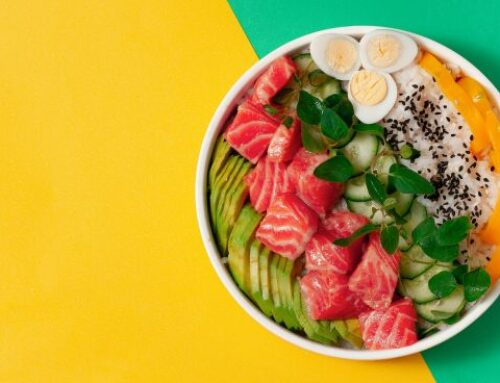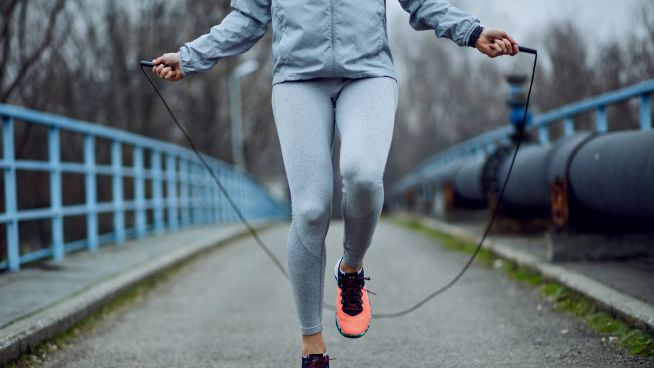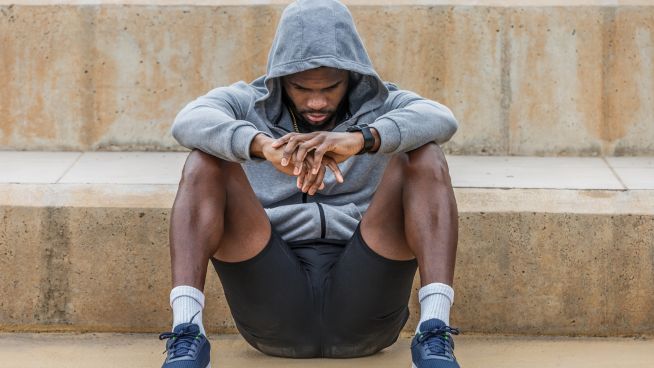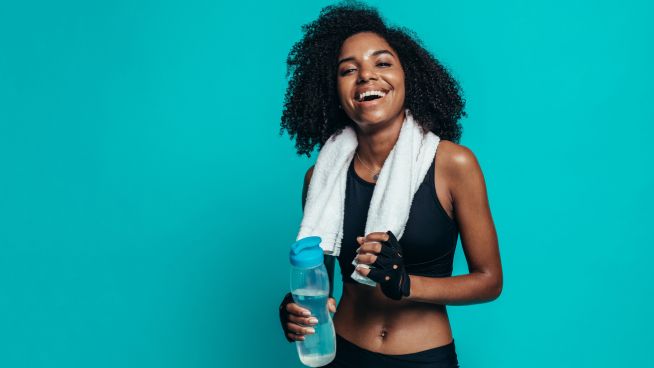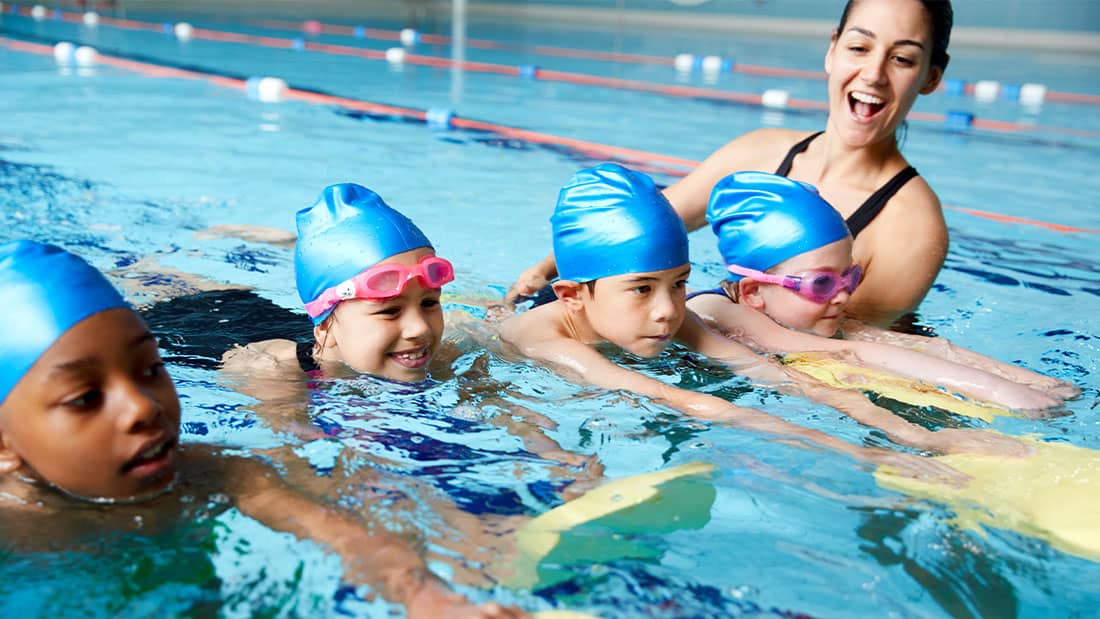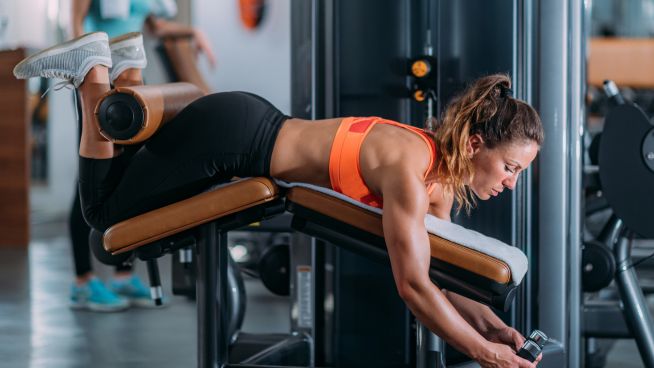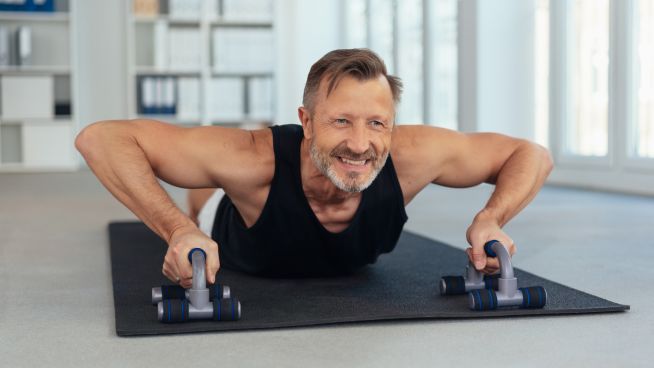Forget the fads and gimmicks. To perform your best, follow three rules of eating before, during and after workouts.
Rule #1: Before Your Activity, “Keep It Real”
Pop quiz: What’s a more effective way to get fired up for your next workout?
A) Blast heavy metal or hip-hop music through your headphones
B) Slam down a caffeine-packed energy drink
C) Eat a banana or sip a sports drink
With all due respect to Metallica and Jay-Z, music isn’t the answer. And despite what you see on TV about certain beverages giving you the ability to fly, caffeine won’t cut it, either.
Athletes need energy—real energy—not just something that sends the heart racing. So although the additives and supplements listed on the label of an energy drink might sound fancy (or scary), there’s really only one proven performer when it comes to fueling your muscles.
“Carbohydrates are the body’s primary source of fuel for muscle contraction,” says Kim Stein, senior scientist at the Gatorade Sports Science Institute.
For those keeping track at home, “contraction” is what happens to your muscles during pretty much every athletic activity. Swing a bat, kick a ball, drive block a snarling nose tackle—in every case, hundreds of muscle fibers in your body are contracting and releasing. Carbs make those movements possible.
Meanwhile, caffeine provides a perceived sense of energy. That “jolt” you feel after chugging a soda is your central nervous system kicking into overdrive. It might make you feel more awake and alert, sure. But it can also make you jittery or shaky, or even leave you with a headache. Oh, and remember the old saying about “what goes up?” That’s right, it comes back down—sometimes with a crash.
Stein recommends fueling up with about 100 calories of easily digested, fast-acting carbohydrates shortly before your workout. Here are four options that will help you get off to a strong start.
Before a Workout, Try…
- Gatorade Prime Energy Chews 100 calories, 24g carbohydrates, three types of B-vitamins (which help convert sugar into energy in the body)
- Gatorade Prime Sports Fuel Drink 100 calories, 25g carbohydrates, 35mg potassium and 100mg sodium (which helps ward off cramps)
- Banana 105 calories, 27g carbohydrates, 422mg potassium
- Apple 72 calories, 19g carbohydrates, 148mg potassium
Rule #2: Water Won’t Cut It
Forty-five minutes into your workout, sweat is pouring down your face. Your shirt is soaked and your hair is sending tiny droplets flying whenever you turn your head. You’re having a great training session, but guess what? At the rate you’re going, you won’t last unless you get some help.
See, your sweat is more than water. Each drop contains essential minerals like sodium and potassium that help maintain your body’s fluid levels. Don’t forget that what powers your muscles during activity isn’t water; it’s carbs—ideally simple, easily digested carbs that your body can turn into energy quickly.
Stein recommends figuring out your fluid needs by weighing yourself before and after a workout in your usual environment. Next time, drink about 16 oz. through the workout for every pound of body weight you lose. Choose fluid that has sodium to replace sweat loss, along with carbohydrates for energy. That’s precisely what drinks like Gatorade Frost deliver. So although water is a good option, keep your body in balance and your energy tank full with a sports drink during training sessions.
During a Workout, Try…
- Gatorade FROST 80 calories, 21g carbohydrates, 160mg sodium, 45mg potassium per 12 ounces
- G2 – Low Cal 20 calories, 5g carbohydrates, 110mg sodium, 30mg potassium
Rule #3: Training Isn’t Over When the Workout Ends
Timing is everything in sports. Being in precisely the right spot at the right moment is how athletes make game-winning catches or sink buzzer-beaters. When it comes to training, there’s one slam dunk every athlete can throw down: refueling after a workout.
Once you put down your last dumbbell or finish your last sprint, your muscles feel a lot like you probably feel: hungry. They’re warmed up and ready for protein. The period of time immediately following a workout is known as the “recovery window,” because your muscles want to absorb sufficient nutrients to begin the rebuilding process.
“Following exercise, most athletes need about 20 grams of protein,” Stein says. “The body is only able to use about 20 grams consumed at one time. Any excess has little or no benefit.”
Products with mega doses of protein aren’t necessary. Studies show that consuming more than 20 grams of protein at one time does little to stimulate muscle protein synthesis. Anything over 20 grams goes to waste—literally. Your body passes it out through your urine.
Your best bet? Knock back a recovery drink that delivers protein and carbs immediately after a workout, then wait about two to three hours before taking in more protein through a meal. “The time between eating provides the body enough time to digest and absorb,” Stein says. “Eating another 20 grams of protein gives you a blast of amino acids that help your muscles continue the recovery and rebuilding process.”
Right After a Workout, Try…
- G Series Recover Protein Drink 230 calories, 16g protein, 43g carbohydrates, 220mg sodium, 85mg potassium
- G Series Recover Protein Shake 270 calories, 20g protein, 45g carbohydrates, 320mg sodium, 540-640mg potassium (varies by flavor)
Two to Three Hours Later, Go With…
- Grilled Chicken Breast (3 oz.) 141 calories, 26g protein, 0g carbohydrates
- Low-fat Cottage Cheese (½-cup) 81 calories, 14g protein, 3g carbohydrates
- Fat-Free Greek Yogurt (6 oz.) 100 calories, 18g protein, 7g carbohydrates
- Jumbo Shrimp (8 pieces) 110 calories, 21g protein, 1g carbohydrate
RECOMMENDED FOR YOU
MOST POPULAR
Forget the fads and gimmicks. To perform your best, follow three rules of eating before, during and after workouts.
Rule #1: Before Your Activity, “Keep It Real”
Pop quiz: What’s a more effective way to get fired up for your next workout?
A) Blast heavy metal or hip-hop music through your headphones
B) Slam down a caffeine-packed energy drink
C) Eat a banana or sip a sports drink
With all due respect to Metallica and Jay-Z, music isn’t the answer. And despite what you see on TV about certain beverages giving you the ability to fly, caffeine won’t cut it, either.
Athletes need energy—real energy—not just something that sends the heart racing. So although the additives and supplements listed on the label of an energy drink might sound fancy (or scary), there’s really only one proven performer when it comes to fueling your muscles.
“Carbohydrates are the body’s primary source of fuel for muscle contraction,” says Kim Stein, senior scientist at the Gatorade Sports Science Institute.
For those keeping track at home, “contraction” is what happens to your muscles during pretty much every athletic activity. Swing a bat, kick a ball, drive block a snarling nose tackle—in every case, hundreds of muscle fibers in your body are contracting and releasing. Carbs make those movements possible.
Meanwhile, caffeine provides a perceived sense of energy. That “jolt” you feel after chugging a soda is your central nervous system kicking into overdrive. It might make you feel more awake and alert, sure. But it can also make you jittery or shaky, or even leave you with a headache. Oh, and remember the old saying about “what goes up?” That’s right, it comes back down—sometimes with a crash.
Stein recommends fueling up with about 100 calories of easily digested, fast-acting carbohydrates shortly before your workout. Here are four options that will help you get off to a strong start.
Before a Workout, Try…
- Gatorade Prime Energy Chews 100 calories, 24g carbohydrates, three types of B-vitamins (which help convert sugar into energy in the body)
- Gatorade Prime Sports Fuel Drink 100 calories, 25g carbohydrates, 35mg potassium and 100mg sodium (which helps ward off cramps)
- Banana 105 calories, 27g carbohydrates, 422mg potassium
- Apple 72 calories, 19g carbohydrates, 148mg potassium
Rule #2: Water Won’t Cut It
Forty-five minutes into your workout, sweat is pouring down your face. Your shirt is soaked and your hair is sending tiny droplets flying whenever you turn your head. You’re having a great training session, but guess what? At the rate you’re going, you won’t last unless you get some help.
See, your sweat is more than water. Each drop contains essential minerals like sodium and potassium that help maintain your body’s fluid levels. Don’t forget that what powers your muscles during activity isn’t water; it’s carbs—ideally simple, easily digested carbs that your body can turn into energy quickly.
Stein recommends figuring out your fluid needs by weighing yourself before and after a workout in your usual environment. Next time, drink about 16 oz. through the workout for every pound of body weight you lose. Choose fluid that has sodium to replace sweat loss, along with carbohydrates for energy. That’s precisely what drinks like Gatorade Frost deliver. So although water is a good option, keep your body in balance and your energy tank full with a sports drink during training sessions.
During a Workout, Try…
- Gatorade FROST 80 calories, 21g carbohydrates, 160mg sodium, 45mg potassium per 12 ounces
- G2 – Low Cal 20 calories, 5g carbohydrates, 110mg sodium, 30mg potassium
Rule #3: Training Isn’t Over When the Workout Ends
Timing is everything in sports. Being in precisely the right spot at the right moment is how athletes make game-winning catches or sink buzzer-beaters. When it comes to training, there’s one slam dunk every athlete can throw down: refueling after a workout.
Once you put down your last dumbbell or finish your last sprint, your muscles feel a lot like you probably feel: hungry. They’re warmed up and ready for protein. The period of time immediately following a workout is known as the “recovery window,” because your muscles want to absorb sufficient nutrients to begin the rebuilding process.
“Following exercise, most athletes need about 20 grams of protein,” Stein says. “The body is only able to use about 20 grams consumed at one time. Any excess has little or no benefit.”
Products with mega doses of protein aren’t necessary. Studies show that consuming more than 20 grams of protein at one time does little to stimulate muscle protein synthesis. Anything over 20 grams goes to waste—literally. Your body passes it out through your urine.
Your best bet? Knock back a recovery drink that delivers protein and carbs immediately after a workout, then wait about two to three hours before taking in more protein through a meal. “The time between eating provides the body enough time to digest and absorb,” Stein says. “Eating another 20 grams of protein gives you a blast of amino acids that help your muscles continue the recovery and rebuilding process.”
Right After a Workout, Try…
- G Series Recover Protein Drink 230 calories, 16g protein, 43g carbohydrates, 220mg sodium, 85mg potassium
- G Series Recover Protein Shake 270 calories, 20g protein, 45g carbohydrates, 320mg sodium, 540-640mg potassium (varies by flavor)
Two to Three Hours Later, Go With…
- Grilled Chicken Breast (3 oz.) 141 calories, 26g protein, 0g carbohydrates
- Low-fat Cottage Cheese (½-cup) 81 calories, 14g protein, 3g carbohydrates
- Fat-Free Greek Yogurt (6 oz.) 100 calories, 18g protein, 7g carbohydrates
- Jumbo Shrimp (8 pieces) 110 calories, 21g protein, 1g carbohydrate


